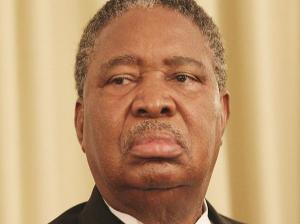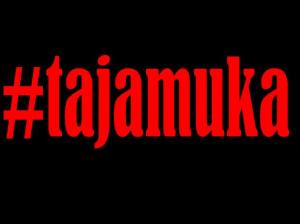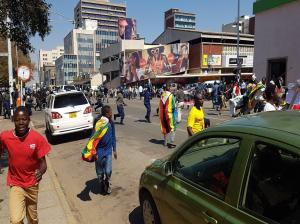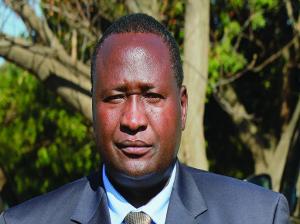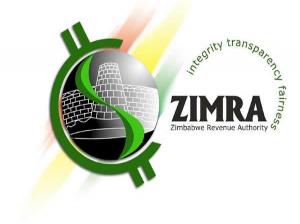Power Trade Pacts Likely To Balance Electricity Supply

Published: 2016 June 14 07:00:37 (6259 Views)
ENERGY and power development are integral components in the implementation of the Southern African Development Community (Sadc) industrialisation agenda aimed at unlocking more opportunities and economic integration.
At the centre of the regional economic strategy is revitalisation of regional integration and enhancing competitiveness through fostering robust industrialisation that is anchored on value addition and beneficiation of natural resources. These are mainly focused on infrastructure areas in energy, information communication technology, transport and water as well as processing industries linked to agriculture and mining value chains.
A sober realisation has been that while this noble initiative buttresses the broader Sadc Industrialisation Strategy and Roadmap (2015-63) as well as the Regional Infrastructure Development Master Plan (RIDMP), its objectives could not be easily attained in the absence of sufficient energy and power backing.
Power shortages remain a common feature across Sadc and Africa as a whole mainly in the major urban areas while vast swathes of rural areas have no electric power at all. “Sub-Saharan Africa is generally short of electricity,” according to the Africa Progress Report 2015. A few countries are able to provide uninterrupted power supply all year round.
As a consequence the region is losing between 2-4 percent of its annual gross domestic product due to incessant blackouts that negatively affect economic activity, Africa Renewal, a United Nations department of public information publication reported in April 2016. The El-Nino-induced drought that has swept across the Sadc has negatively affected hydro-electric dams, further crippling power generation capacity.
Since 2015 Zimbabwe, for instance, has suffered a loss of power production at its Kariba Hydro-power plant, which has reduced its output to about 400MW against installed 750MW capacity due to a cap in water usage by the Zambezi River Authority. Zambia has suffered a similar fate as it shares the same water resource with Zimbabwe.
Similarly higher fuel costs have made it more expensive to run thermal generators while poor maintenance of existing infrastructure and lack of private investment, have also contributed to the poor state of energy development in the region.
These barriers have impacted negatively on regional tariff competitiveness with utilities pricing blamed for increasing consumer burden and costs of production in major economic sectors.
In the case of Zimbabwe average power output has plunged to a region of 1,000MW from about 1,400M against average demand of 2,200MW. The situation has forced the country to resort to imports from regional producers to bridge the supply gap.
In South Africa the Reserve Bank has indicated it was anticipating a loss of 0,6 percent in economic growth in 2015 and 2016 due to power shortages.
Given the above context, power trading agreements between countries that possess excess power generating capacity and those battling supply shortages are set to become a dominant theme in the regional electricity markets in the next five coming years, says Standard Bank.
Mozambique, which currently has the potential to produce more electricity than its economy requires at present, is likely to dominate the supply-side of this trading market with Namibia, Zambia and Botswana expected be the main purchasers in the region, after South Africa, it said.
Zimbabwe, while working on implementing several power projects set to add up to 2,000MW to the national grid in the next four years, is currently importing an average 50MW from Mozambique and 300MW from South Africa’s Eskom.
According to Standard Bank, the biggest challenge to these power trading arrangements would be reliable and stable transmission networks to facilitate the seamless transfer of electricity between sellers and purchasers.
These networks, it said, require significant co-operation between neighbouring countries hence the role of the Southern African Power Pool (SAPP) in ensuring cross-border planning, investment and trading between member states remains critical.
“Power will increasingly become one of the most tradable commodities across the region in the coming years given the electricity shortage we’re seeing across Southern Africa,” says Cody Aduloju, executive in Standard Bank’s power and infrastructure division.
“Almost every aspect of a modern economy relies on electricity to function so the countries that emerge as the ones with excess supply will have significant negotiating power, so to speak.”
Aduloju says that Mozambique, which plans to double its generating capacity to five Gigawatts (GW) by 2025, is one of the few countries in Africa that currently possesses an over-supply of electricity thanks to the hydro power available from the Cahora Bassa dam, which has an installed capacity of 2,075MW of power per year or around 73 percent of the country’s installed generating capacity.
Mozambique has the potential to expand the existing capacity of the Cahorra Bassa hydro facility by approximately 60 percent provided it can attract the necessary investment, he says.
“The biggest challenge that Mozambique faces in taking advantage of this opportunity and many other power projects, is that it has weak transmission infrastructure, which is a key requirement for exporting adequate levels of electricity to other countries in the region,” says Aduloju.
“However, it has phenomenal potential for electricity production, ranging from coal-, gas- and hydro powered generation.” Mozambique recently commissioned Sasol’s CTRG 175MW gas fired project. While small by international comparison, the value of such projects should not be underestimated in a regional context.
The 118MW gas-fired plant built in Mozambique by Gigawatt, a company that was awarded a gas power generation concession by the country’s government to supply electricity to the capital city of Maputo, would add significantly to the nation’s grid.
Experts say improved transmission line infrastructure would enable Mozambique to boost power exports. The country already supplies approximately 1,349MW to South Africa, 50MW to Botswana and some to Zimbabwe.
Mozambique has recently begun supplying 100MW to Zambia where there is a shortage of power due to low water levels at Kariba Dam. Namibia also represents a huge opportunity for countries with potential oversupply in the region as it currently imports about 61 percent of its electricity needs.
Given Namibia’s total power demand of 534MW, that would leave an estimated 320MW in possible supply deals up for grabs based on current peak usage Zof 508MW, said Standard Bank.
Botswana is another country in the region that is likely to remain reliant on its neighbours for the foreseeable future given that the country already imports 68 percent of its power needs. SAPP has, since inception facilitated the regional power trading framework by ensuring reliable and economical electricity supply across the region.
Its members include utilities and private power producers from Botswana, South Africa, Mozambique, Lesotho, the Democratic Republic of Congo (DRC), Zimbabwe, Zambia, Namibia, Swaziland and Malawi.
Plans are also afoot to determine the viability of building a multi-billion project to build a power transmission network linking the power grids of South Africa, Mozambique, Namibia, the DRC and Angola.
Hydro power has already been identified as a possible opportunity for Angola via the proposed 2067MW Luaca and 300MW (50 percent) Baynes plants. That is expected to go some way towards enabling Angola to achieve its goal of almost tripling its installed generating capacity 9,000MW by 2025.
Aduloju says that the DRC represents perhaps the biggest missed opportunity for the economic growth of any single country across the entire African continent.
While most African states rely on coal-fired power generation, growing environmental concerns have stressed the need to embrace green energy such as solar and gas as part of measures to reduce pollution. Comparatively, Africa generally has a huge potential of benefitting from solar projects given its exposure to the sun.
The technology is slowly gaining a foothold in Sadc with countries such as South Africa taking the lead. However, experts have blamed slow progress to high costs of solar technology installations, which limit its accessibility to the poor.
“It is unlikely that any country in Africa will have sufficient power generating capacity in the foreseeable future so it is absolutely imperative that the continent consider an adequate power trading mechanism in addition to investments in generating infrastructure,” said Aduloju.
- Chronicle
You May Like These Videos
Comments
There are no comments.
Get Zim Metro Updates Alerts
Big Reads

Schoolgirl drops out after continuous 'sexual abuse' by teacher
by Staff Reporter | 2019 August 13 07:42:33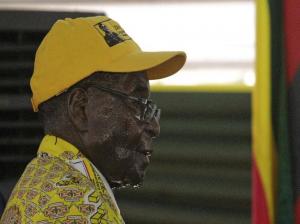
Mugabe Knows Nothing About The Zimbabwe Constitution: MP
by Staff Reporter | 2016 October 01 08:12:02
Zim's Protesting Graduates Risk Losing Degrees For Expressing Anger Against Mugabe
by Staff Reporter | 2016 October 01 07:57:08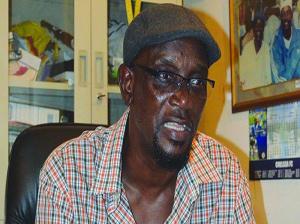
Troubled Harare Giants Dynamos Falls Into Another Deep Crisis
by Own Correspondent | 2016 October 01 07:49:17
Grace Mugabe Grovels At Mnangagwa, Says I Did Not Ask Ubaba To Fire You
by Staff Reporter | 2016 October 01 07:31:48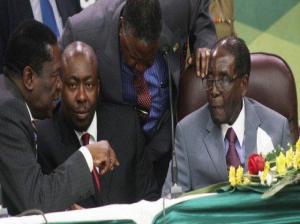
Mugabe Attacks Mawarire, Claims The Exiled Pastor Failed To Divide Zimbabwe
by Staff Reporter | 2016 October 01 07:19:13
Shock As Local Bank Denies 'Rich' Mugabe's Son Heifty Credit
by Own Correspondent | 2016 September 30 19:14:54
Trouble For Police Officers Who Have Been Mercilessly Bludgeoning Protesters
by Staff Reporter | 2016 October 01 07:20:19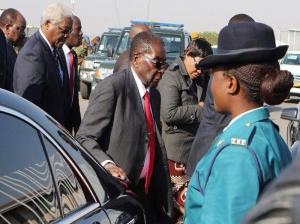
Mugabe "Home Coming" And "Thank You" Rally On Cards
by Own Correspondent | 2016 September 23 06:48:24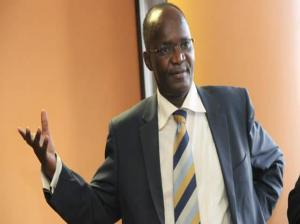
Prof Moyo Was Dumped By Western Embassies, Claims Mutsvangwa
by Staff Reporter | 2016 September 22 10:08:07
Broke RBZ Tracks Down Zimbabweans Living Outside The Country Over Taxi
by Staff Reporter | 2016 September 22 09:16:20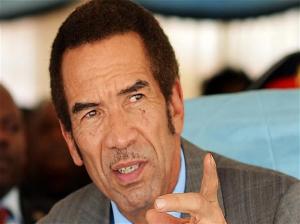
You Are Too Old To Lead, Aging Zim President Mugabe Told
by Own Correspondent | 2016 September 22 07:19:25
Anti-Corruption Commission Loses Property In Failed Probe
by Own Correspondent | 2016 September 20 03:18:19
SHOCKING:14 Year Old HIV-Positive Boy Rapes 7 Pupils
by Own Correspondent | 2016 September 20 00:04:55

 WATCH: Victims Narrate Ordeal After Being Clobbered By Riot Cops
WATCH: Victims Narrate Ordeal After Being Clobbered By Riot Cops FLASHBACK: Morgan Tsvangirai Won't Resign Despite Illness
FLASHBACK: Morgan Tsvangirai Won't Resign Despite Illness  Police Violently Beat Harare Protesters
Police Violently Beat Harare Protesters  Zimbabwean Man Who Was Shot By Tswana Employer Appeals For Help
Zimbabwean Man Who Was Shot By Tswana Employer Appeals For Help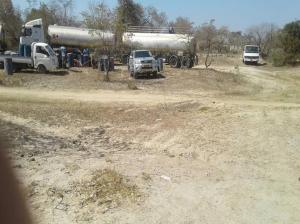

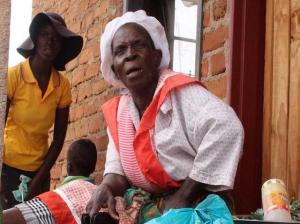





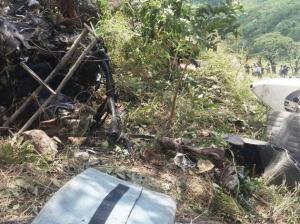

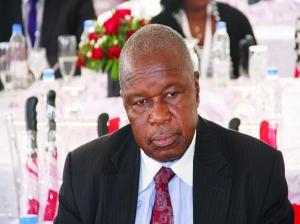

.jpg)
